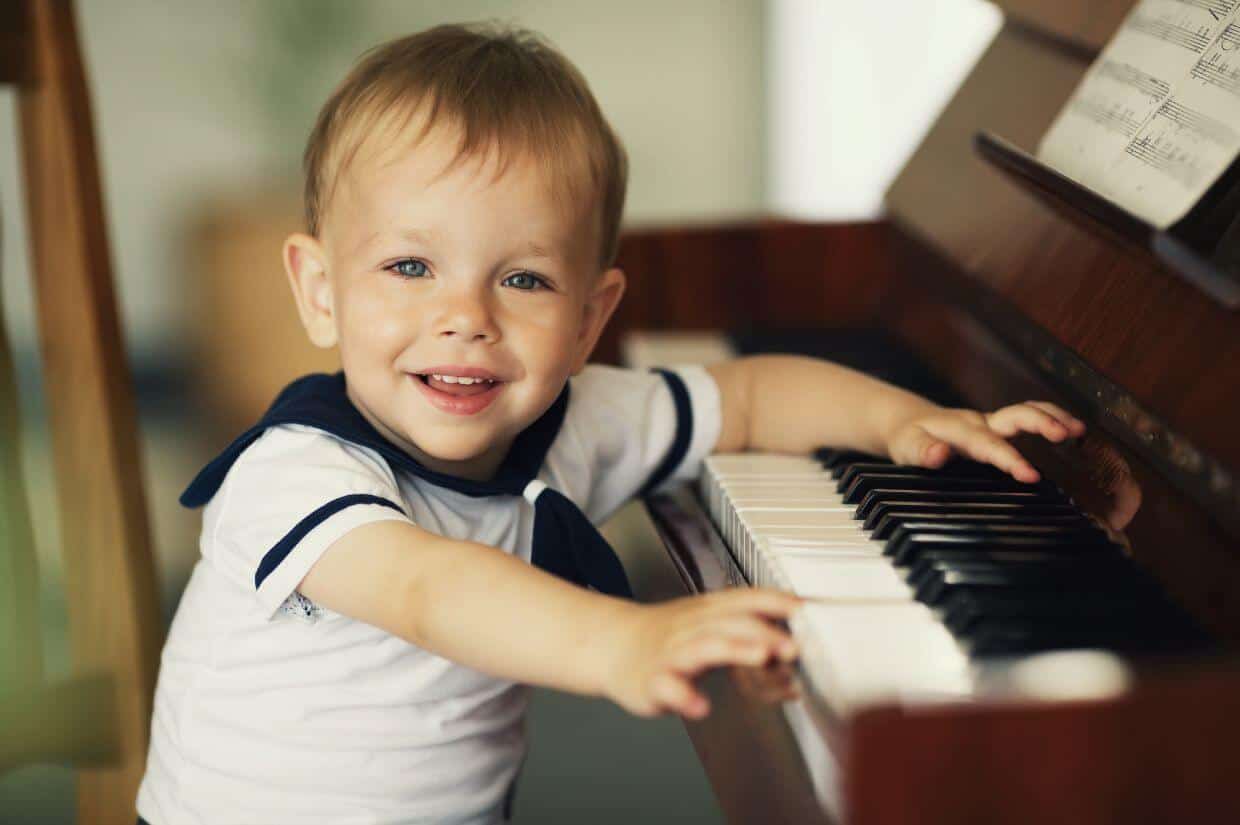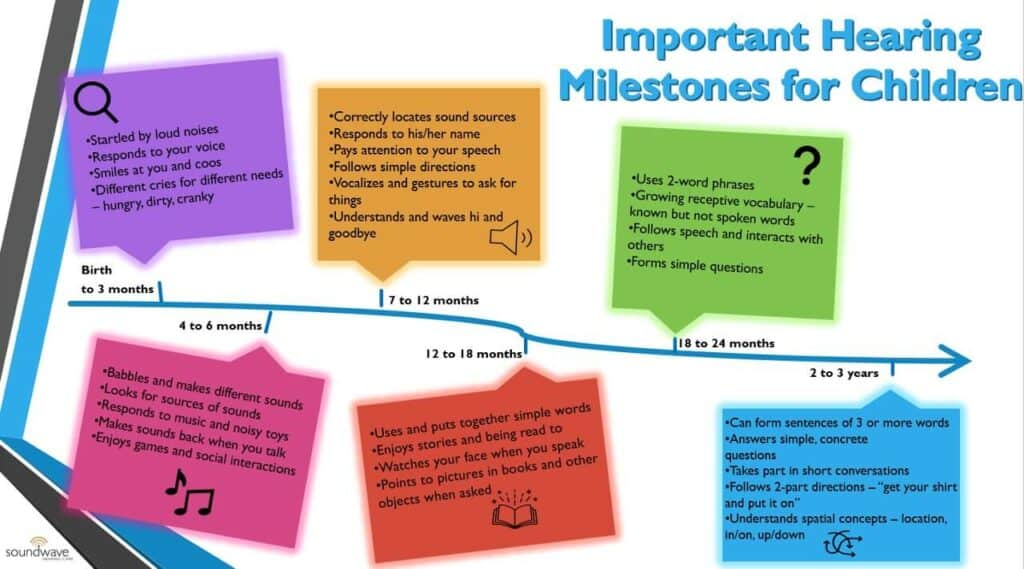Blog
Blog
Understanding how children listen and learn

Being a parent, you’re probably aware there’s a big difference between when your kids hear you and when they listen to you. But did you know that, in addition to promoting good behaviour, listening plays a crucial role in a child’s development and learning? Here’s a look at the importance of listening and the effects of hearing impairments.

Important hearing milestones for children
Children learn and understand the sounds they hear at an increasingly rapid rate. Here are some typical hearing developmental milestones to look for as your child grows:
- Birth to three months. In the first weeks of life, your baby may be startled by loud noises and respond to your voice. They’ll smile and coo at you and have different cries for different needs, such as hunger, a dirty diaper or crankiness.
- Four to six months. After about four months, your baby may babble and make different sounds, look for the sources of sounds and respond to music and toys that make noise. They’ll also start to enjoy games or social interactions.
- Seven to 12 months. Development continues rapidly after six months, as your child correctly locates sources of sounds, responds to their name and pays attention to your speech. They’ll be able to follow simple directions and vocalize or gesture to ask for things. They’ll also communicate by waving hello and goodbye.
- 12 to 18 months. After your child’s first birthday, they may increase vocabulary and put together simple words. They’ll enjoy listening to stories and being read to, watching your face intently as you speak and pointing to people and objects in books when asked.
- 18 to 24 months. At this point, your child may begin to use two-word phrases, form simple questions, follow speech, and interact with others. They’ll understand more words, even if they may not yet speak them.
- Two to three years. Between two and three years old, your child should start to form sentences of three or more words and answer simple questions. They’ll participate in short conversations, follow two-step directions and understand spatial concepts such as up and down, in or on.
Every child grows and develops at different rates. However, if you’re concerned your child may be missing key milestones, seek professional guidance. Without intervention, they may be at risk of encountering difficulties as they enter school. Contact an audiologist or hearing clinic to schedule a hearing test.
Early development and listening in school
Hearing and listening abilities are essential building blocks for language development and learning how to communicate. However, hearing and listening also play significant roles in other facets of childhood development, such as emotional bonding and socializing.
In addition, listening is a vital skill for children to acquire before they start school, as most classroom teaching is verbal. Keep in mind that listening encompasses much more than just hearing. It’s about following directions, understanding what’s being said, asking pertinent questions and improving their reading skills.
How a hearing impairment affects learning
Since listening plays a vital role in children’s development, untreated hearing loss can cause delays in speech and language. This can make it harder for them to learn, leading to poor academic performance, low self-esteem, misbehaviour, anxiety and other problems. In some cases, the child may be misdiagnosed with a learning disability or behavioural disorder.
How to prevent hearing loss in children
While some hearing loss can be congenital or the result of a condition, disease or injury, noise-induced hearing loss is preventable. This type of hearing impairment is caused by prolonged or repeated exposure to loud noises of over 85 decibels. Here are some ways you can protect your children’s hearing:
- Keep the volume on computers and TVs at the lowest setting that still allows them to hear clearly.
- Reduce their exposure to sources of loud noises such as concerts, fireworks, lawnmowers and power tools.
- Encourage them to wear earplugs or earmuffs if they’ll be around sources of loud, potentially harmful noises.
- Purchase headphones with a feature that prevents them from raising the volume over a certain number of decibels.
Family-friendly hearing clinics in Alberta
Soundwave Hearing Care is committed to helping people of all ages hear better. We offer pediatric hearing care at our Calgary, Grande Prairie, High River and Lethbridge clinics. Whether your infant is missing hearing milestones or your teen needs hearing aids, count on our audiologists for friendly, professional care. Contact us today to book an appointment.
All the blogs are reviewed and edited by our clinic's lead audiologist, Dr. Anne Wooliams. Dr. Woolliams is an experienced audiologist specialized in pediatric audiology, auditory processing, and tinnitus/sound sensitivity therapy. She is dedicated to providing top-notch hearing care and helping her clients improve their language and communication abilities. Dr. Woolliams' expertise in literature and linguistics, combined with her passion for helping people improve their language and communication, make her an incredibly valuable asset in the field of audiology. Learn more about Dr. Woolliams.
